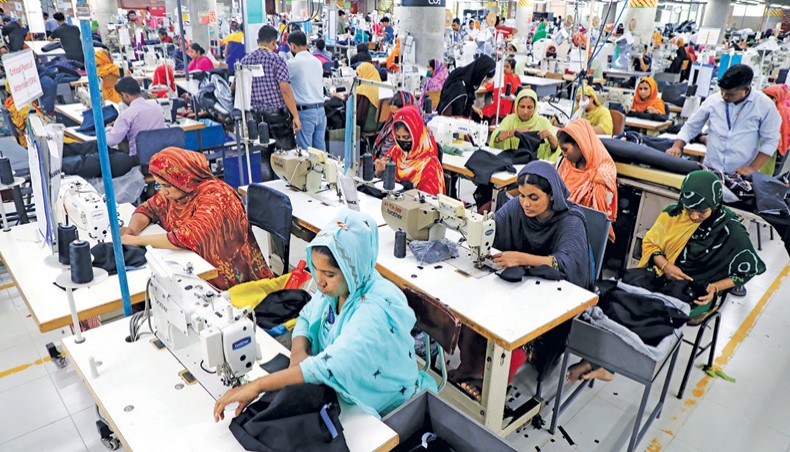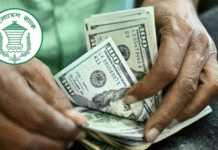
A file photo shows workers sewing clothes at a readymade garment factory in Dhaka. Country’s export oriented textile and clothing sector businesses have said that the government’s decision to withdraw cash incentives for the major portion of garment products was illogical at a time when the country’s textile and clothing sectors were struggling to cope with multifarious challenges, including gas crisis and increased cost of doing business. — New Age photo
Country’s export oriented textile and clothing sector businesses have said that the government’s decision to withdraw cash incentives for the major portion of garment products was illogical at a time when the country’s textile and clothing sectors were struggling to cope with multifarious challenges, including gas crisis and increased cost of doing business.
The Bangladesh Bank on January 30 issued a circular lowering the cash incentives against exports of products under 43 categories for the current financial year 2023-24.
In the circular, the BB also excluded readymade garment products under five HS headings – (6105) men’s or boys’ knitted or crocheted shirts, (6107) men’s or boys’ briefs and siilar articles, (6109) T-shirts, singlets and other vests, (6110) jerseys, pullovers, cardigans an articles and (6203) men’s or boys’ suits, ensembles, jackets, blazers and trousers – from the export subsidy.
According to the circular, the new instructions on the export subsidy would remain effective from January 1 to June 30.
Exporters said that the decision of the Bangladesh Bank without discussion with stakeholders would plunge the textile and clothing industry into a disaster as the export orders of readymade garments had decreased by 20 per cent due to the global economic slowdown and at the same time, production of yarns in spinning mills came down to 30-40 per cent due to the severe shortage of gas.
The Bangladesh Bank in its circular, however, said that the government had decided to reduce the cash incentives against exports gradually as after the graduation of the country from least developed status in 2026, the export subsidy would be prohibited under provision of the World Trade Organisation.
The Bangladesh Textile Mills Association in a recent letter to finance minister Abul Hassan Mahmood Ali said that the trade body also agreed with the government’s decision to withdraw export subsidy gradually but the government should provide alternative support to the sector before excluding RMG products under five HS codes from the facility.
It said that the products which were excluded from the cash incentive brought 55.22 per cent of the country’s total export earnings from RMG and most of the products were made with the yarns produced by the local spinning mills.
The BTMA letter, signed by its president Mohammad Ali Khokon, said that the decision of the government would encourage huge imports of yarns under bonded warehouse facility to produce the products under the five categories mentioned in the BB circular and the lead time for the export will increase.
The BTMA president also said that the excessive import of yarn would ruin the competitive edge of local spinning mills and Bangladesh would turn into a yarn and fabric importing country.
‘Considering demerits of the BB circular, I will request to keep the cash incentive against the exports of the respective products unchanged,’ BTMA said.
Meanwhile, Bangladesh Knitwear Manufacturers and Exporters Association executive president Mohammad Hatem on Tuesday told New Age that the BKMEA held a meeting with the finance minister on Sunday and the minister agreed that the RMG products under the five HS codes should not be excluded from the export subsidy.
The business leader claimed that the provision had been included in the circular intentionally and it would harm the country’s spinning sector.
Hatem said that he put forward their demand for not implementing the circular from January 2024 as the orders from July to January had been negotiated as per the earlier circular on cash incentives in which all the RMG products were entitled to subsidy.
‘We have demanded withdrawal of the provisions from the BB circular which kept RMG products out of cash incentives and excluded India, Japan and Australia from the list of non-traditional markets,’ he said.
Hatem said that the BKMEA also urged the government to give the 10 per cent cash incentive on man-made fibre in the form of export repatriation to reduce hassle for the exporters.
new age









